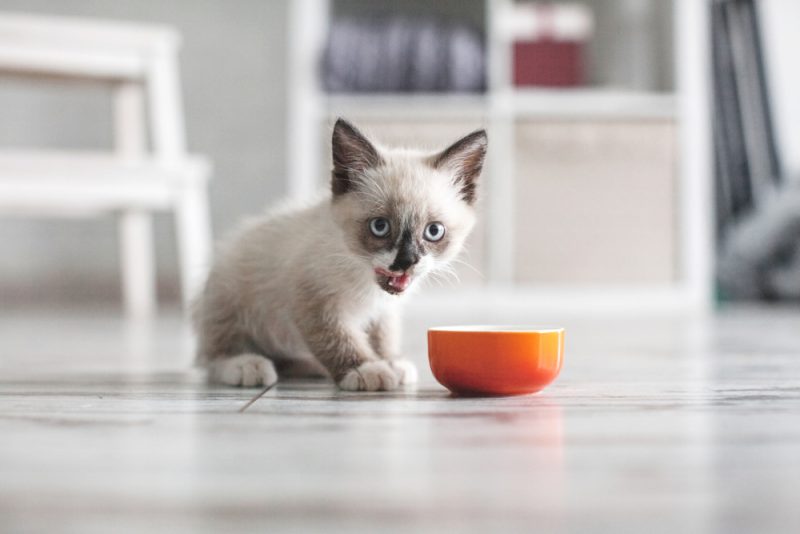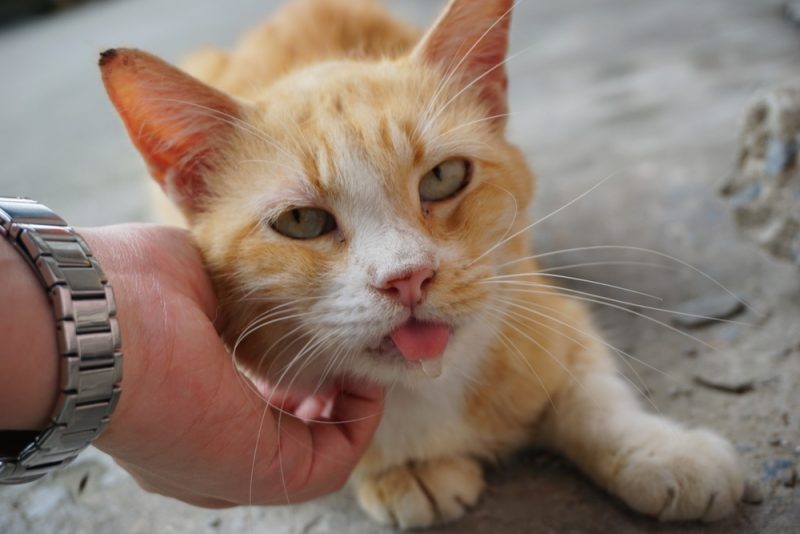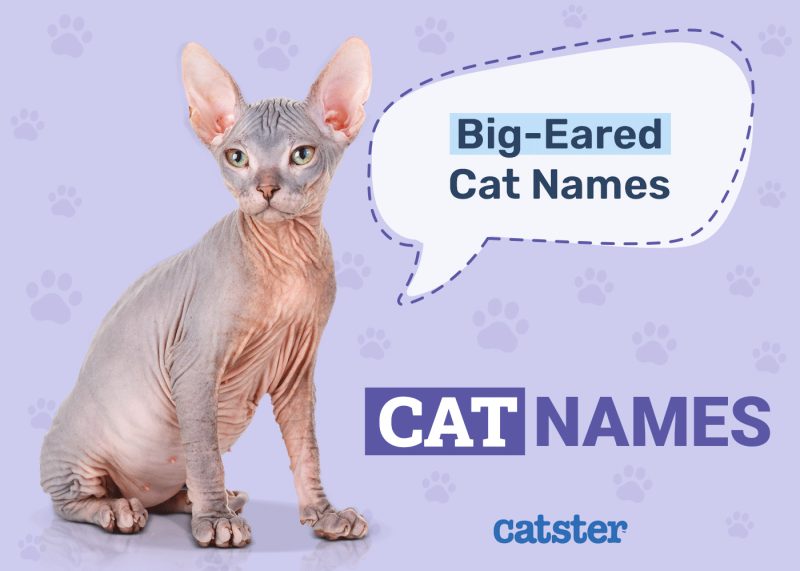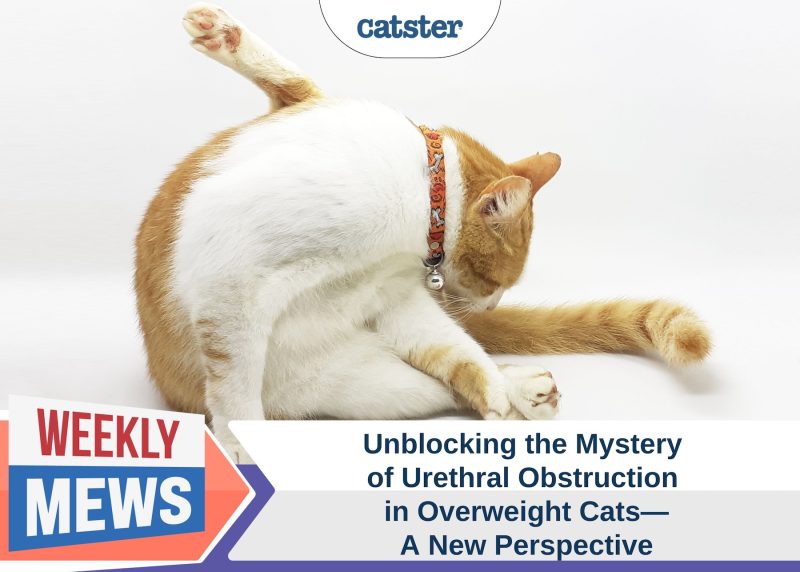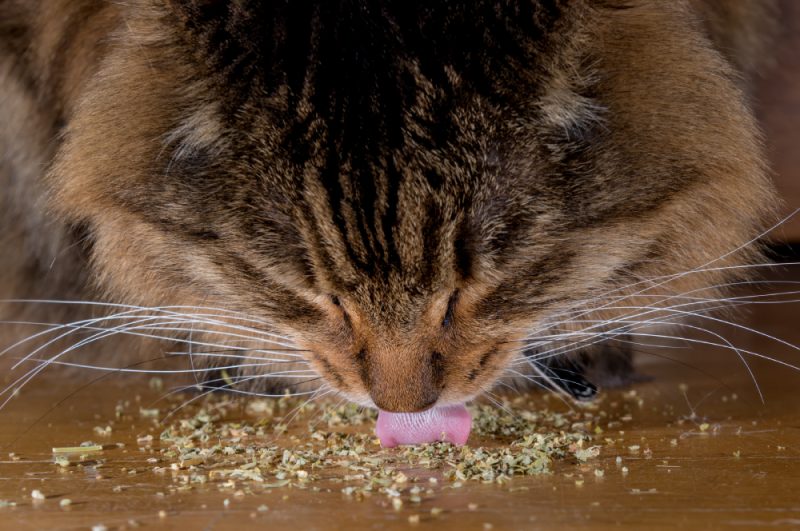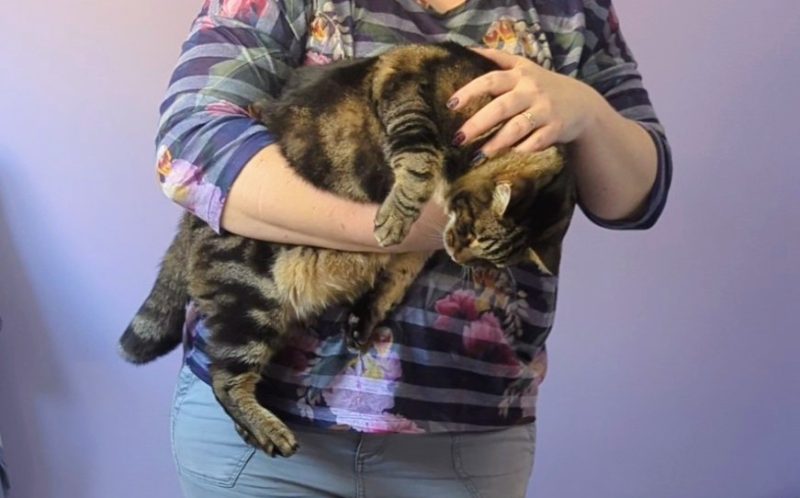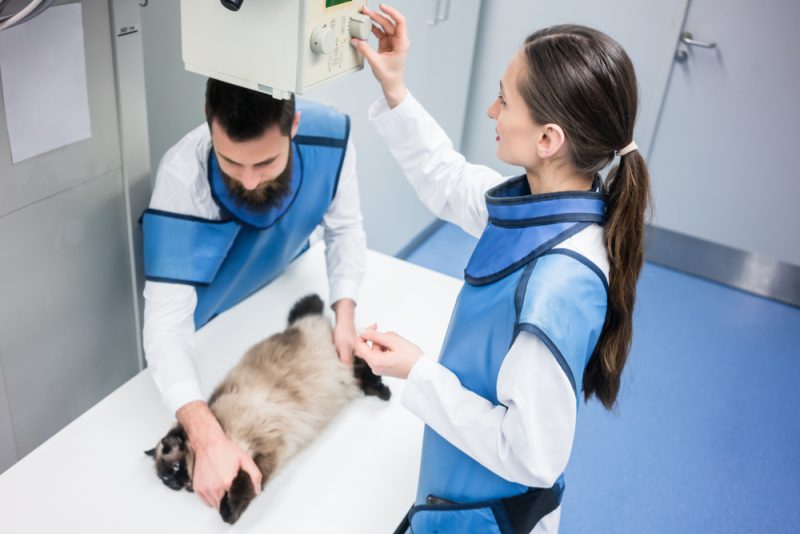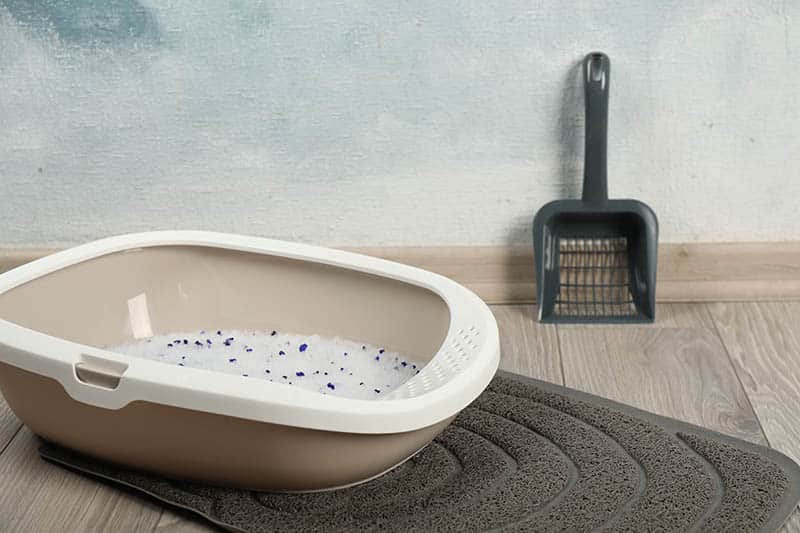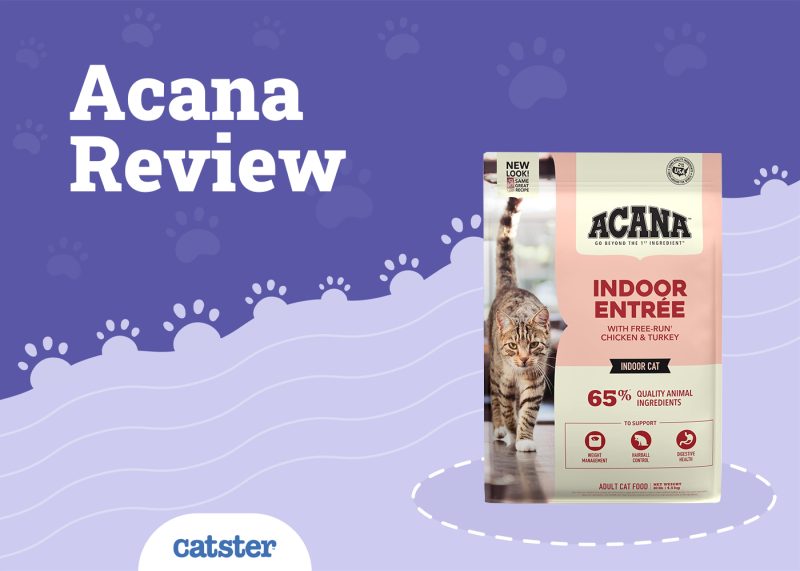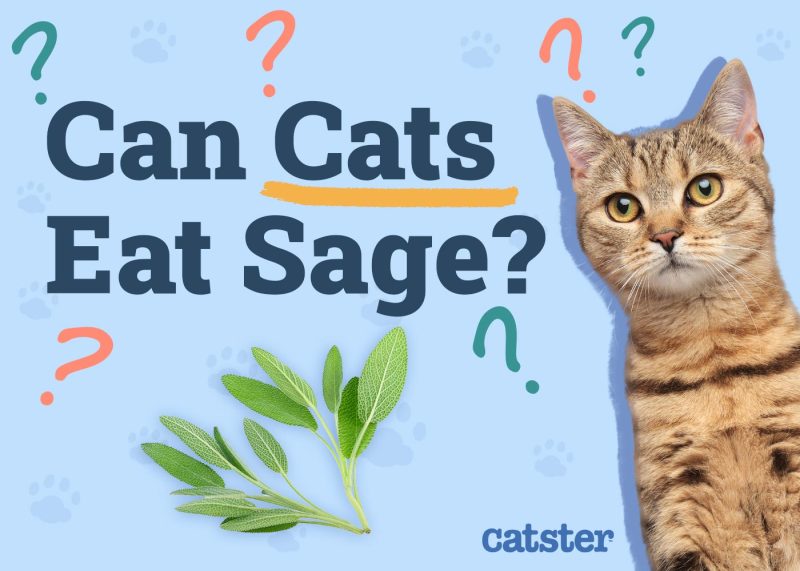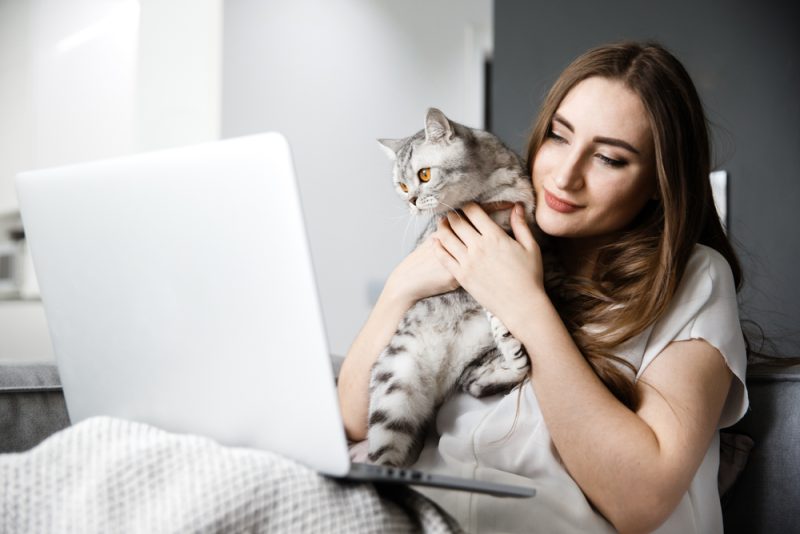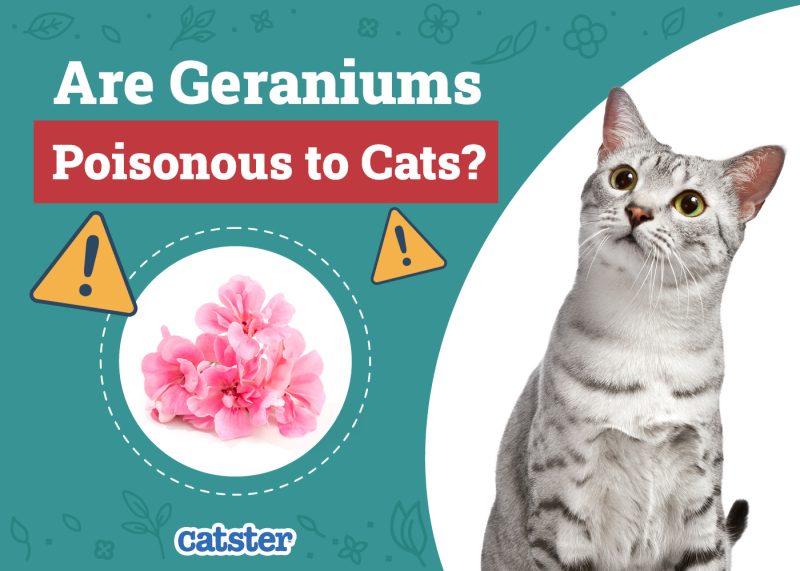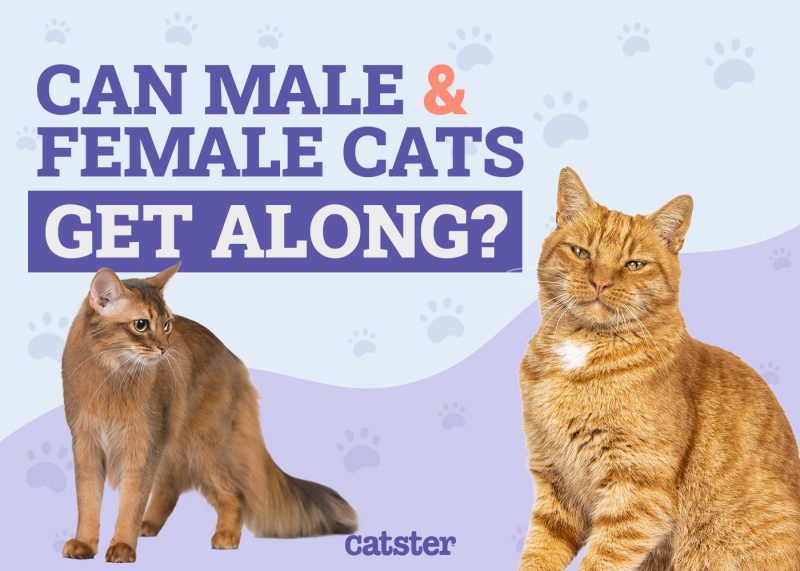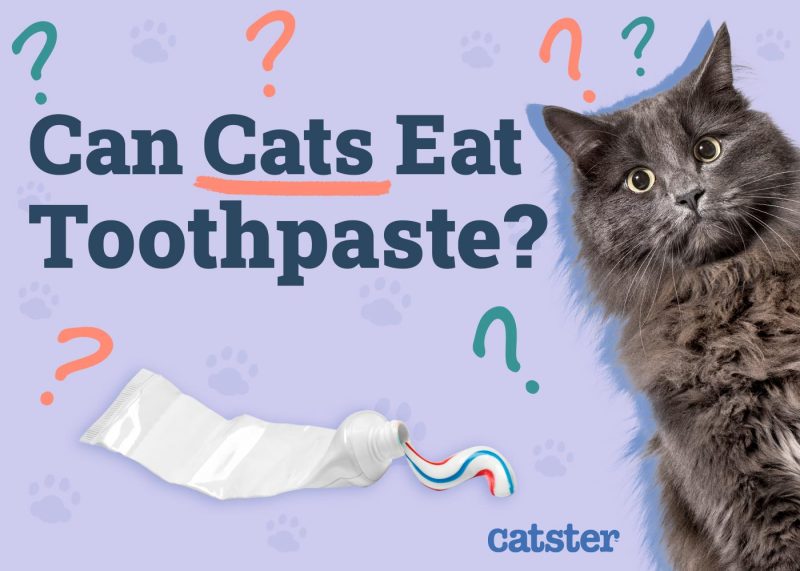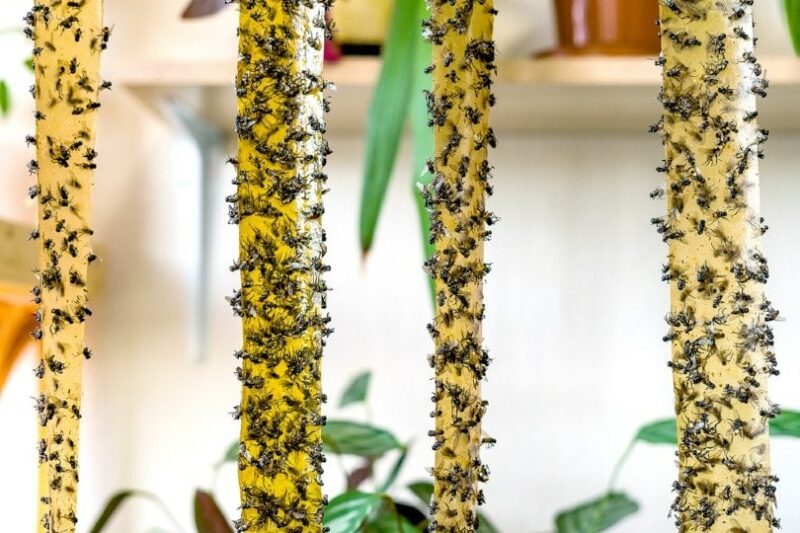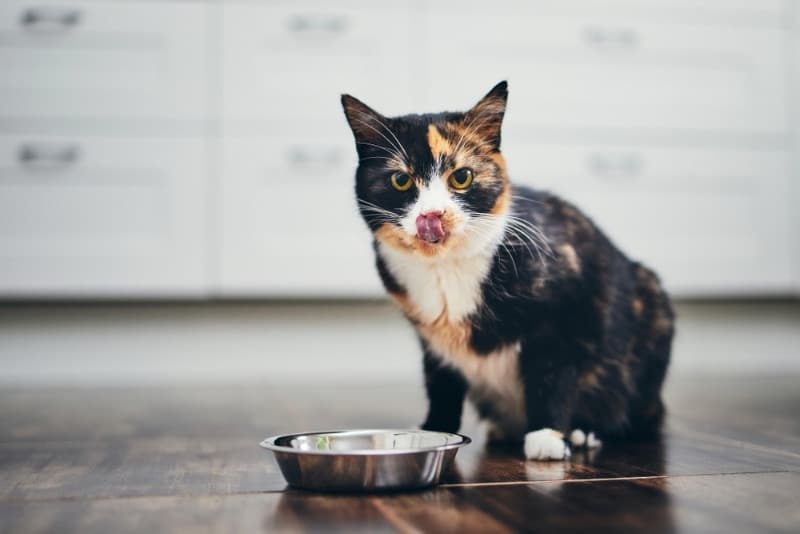In this article
View 4 More +Proper feeding and nutrition are essential for kittens to grow into healthy adults. Kittens reach the weaning stage around 4-5 weeks of age. They should ideally remain with the mother until an absolute minimum of 8 weeks of age (12 to 14 weeks is preferred) at which time they require food that provides all the necessary nutrients where the mother’s milk leaves off. However, newborn kittens that require bottle feedings will need kitten milk replacer every couple of hours.
Whether you have a newborn that requires bottle feeding in the mother’s absence or need tips on feeding a weaned kitten, we’ll cover essential considerations.

What to Feed a Newborn Kitten 0–3 Weeks Old
Sometimes, a kitten cannot receive milk from their mother, or perhaps the mother is absent for whatever reason; in this case, you’ll need to step in and feed the newborn so that the tiny feline has a shot at life. Kittens need high protein for proper growth and development, and if you find yourself in a position where you need to feed a newborn kitten, here are a few important tips and considerations.
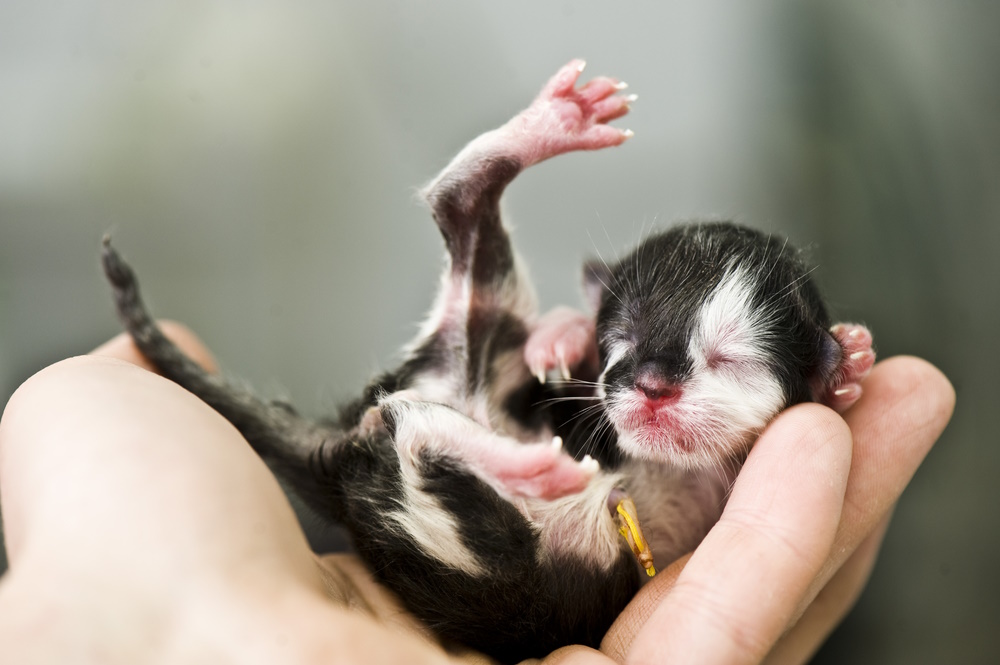
Bottle Feeding
Firstly call the experts, a veterinarian or a rescue organization may have connections to a surrogate cat who can nurse the kitten and adopt the newborn into her own litter. If not, they will likely have recommendations for milk replacers and tips for feeding the kittens. This is no easy task, and if done incorrectly can make the kittens very ill.
Kittens at this critical stage should be fed a high-quality liquid milk replacer. Ensure you follow the instructions carefully, so your formula is the correct concentration, and your kitten receives enough nutrition. It’s also wise to consult a vet on proper feeding portions. Never give cow’s milk or soy milk because they do not have the correct components to nourish a kitten.
Need veterinary advice but can't get to the clinic? Catster recommends PangoVet, our online veterinary service. Talk to a vet online and get the answers and advice you need for your cat without having to leave your living room — all at an affordable price!

What to Feed a Kitten 4–5 Weeks Old
A kitten’s teeth begin to emerge at approximately 4 weeks of age, and at this time, the weaning process begins. However, the teeth are small, and kittens at this stage can consume solid food in a paste form. Royal Canin Mother & Babycat is ideal for the weaning stage. You can start mixing formula with small portions of wet, canned kitten food and feed every 6 to 8 hours. Offer small amounts initially so their digestive system can slowly become accustomed to the new food. Encourage them to try the new mixture by offering it in a shallow saucer or letting them lick a little off their nose or your finger. Over time, the kittens will consume more of the kitten food and take less and less milk from their mother or bottle.
Feed high-quality, complete, wet kitten food approved by the Association of America Feed Controls Officials (AAFCO). To ensure quality, buying from respectable companies is preferred over cheaper brands. You can also purchase dry kitten food and soften them yourself with the milk replacer. Offer water at all times alongside their food from now on.
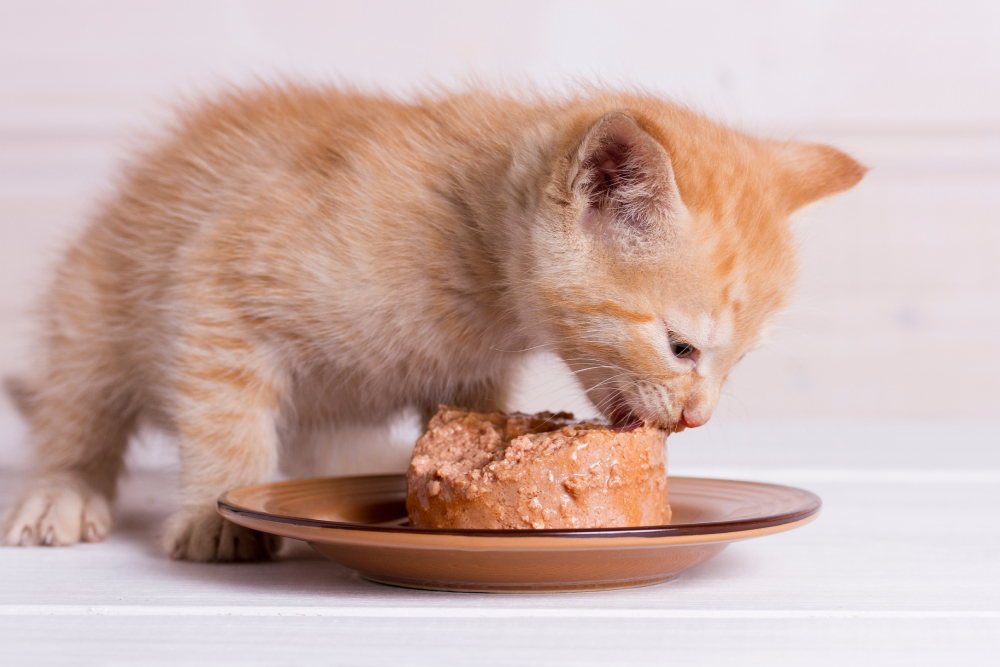
What to Feed Kittens 6 Weeks Old and Over
At this stage, it’s also the time to start incorporating dry kitten kibble into wet kitten food. Again, start with small amounts so your kitten’s digestive system can acclimate to the new food. Dry kitten kibble generally appears at 6 to 8 weeks.
Feeding guidelines vary at this stage, and it’s crucial to consult a veterinarian about how much to feed according to your kitten’s growth rate; you never want to feed too much or too little. The food you choose should have feeding guidelines to give you a ballpark idea; although keep in mind this varies a lot with size, metabolism, and activity levels.
Experts recommend keeping your kitten on kitten food until 1 year old. A kitten’s needs differ from those of adult cats because they require more protein and calories, and different amounts of vitamins and minerals, than what you’ll find in adult kitten food. DHA is an essential nutrient for kittens, for healthy brain development.
 How Do I Switch From One Kitten Food to Another?
How Do I Switch From One Kitten Food to Another?
Cats can be picky eaters, and kittens can also be a bit finicky. If you feel the need to switch up wet kitten food, do so gradually by mixing a little of the old food with the new for a week, with a few more increments of the new food each day. This will help your kitten avoid having an upset tummy.
What Should I Avoid Feeding a Kitten?
Avoid overfeeding your kitten an abundance of treats. A general rule of thumb is to feed less than 10% of your kittens’ daily calorie intake as treats. It’s also recommended to avoid feeding your kitten raw eggs due to possible Salmonella contamination and raw meat due to bacteria and parasites. You must also avoid providing cows milk because it causes diarrhea, as many cats become lactose intolerant as they age. Raw fish should also be avoided because it can lead to a vitamin B1 deficiency.
At Catster, we’ve admired Hepper for many years and decided to take a controlling ownership interest so that we could benefit from the outstanding designs of this cool cat company!

Conclusion
It’s crucial to consult your veterinarian on proper feeding guidelines for kittens. It’s hard to say exactly how much to feed your kitten, as portion sizes may change according to your kitten’s weight gain. Your veterinarian is a valuable resource to help you throughout the entire process to ensure your kitten is receiving all nutritional needs, especially if you’re bottle feeding. We hope our guideline steers you in the right direction; however, we recommend keeping your vet in the loop during this crucial time.
Featured Image Credit: Gladskikh Tatiana, Shutterstock

